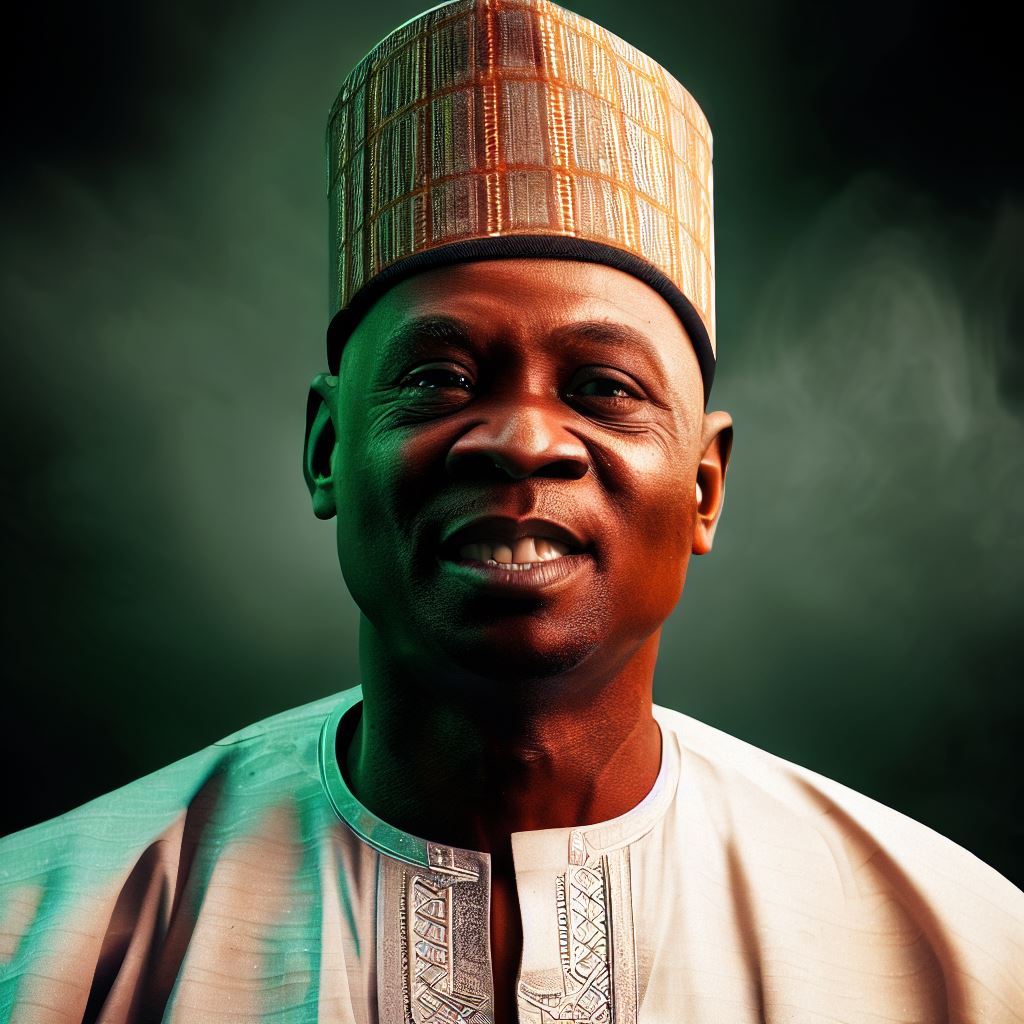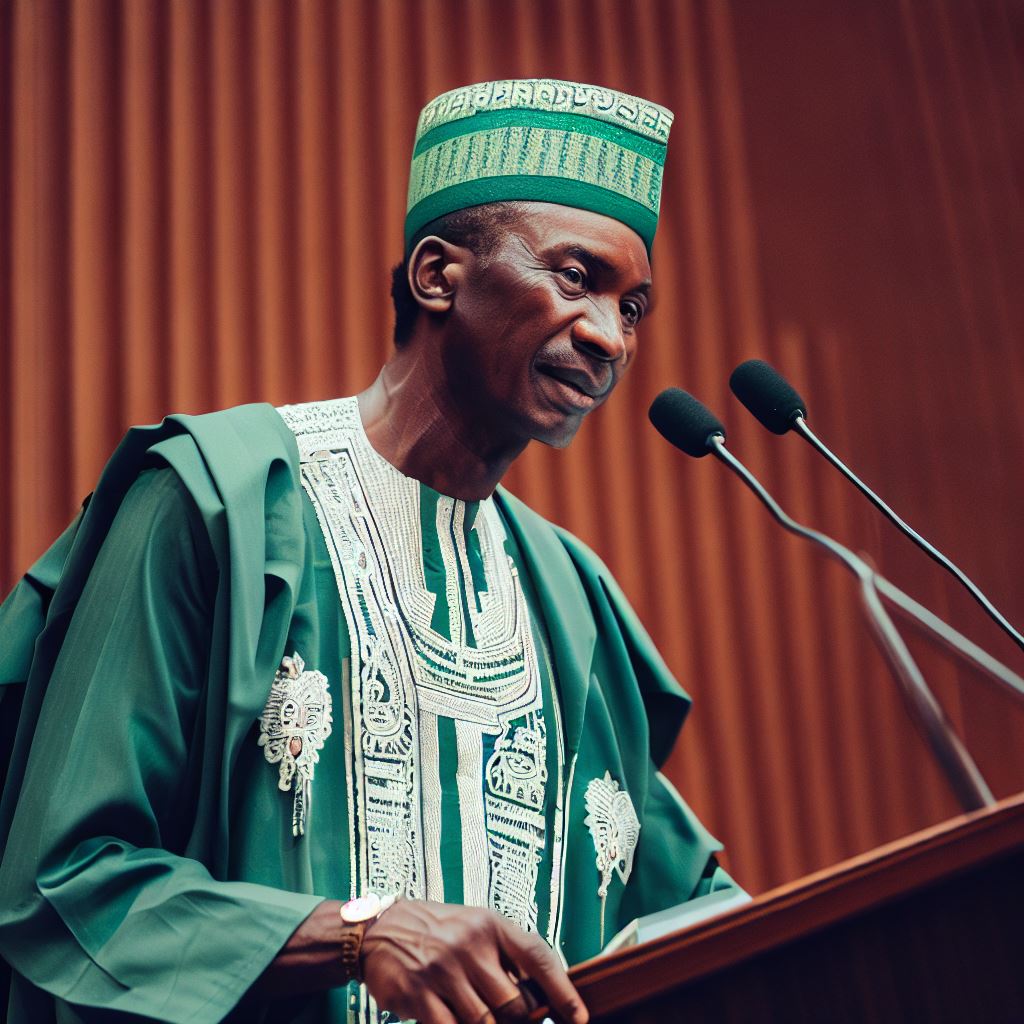Introduction
In understanding the complexities of the Nigeria political economy, it is imperative to grasp the concept itself. Political economy delves into the relationship between political and economic processes in a society.
It examines how political decisions and policies shape economic outcomes and vice versa. Nigeria, a diverse country in West Africa, stands as an intriguing subject to analyze through the lens of political economy.
Nigeria as the subject of analysis
With a rich history entangled in political turmoil and a vast range of economic challenges, Nigeria offers a compelling case study to explore the impact of its leaders and policies on its political economy.
Nigerian leaders have played a significant role in shaping the country’s political economy.
Since gaining independence from Britain in 1960, Nigeria has witnessed a series of leaders who have navigated complex socio-political landscapes and implemented policies that have both propelled the nation forward and hindered its progress.
The choices made by these leaders, from military regimes to civilian governments, have shaped Nigeria’s economic trajectory and influenced the lives of its citizens.
Policies in various sectors, such as oil, agriculture, and education, have had far-reaching consequences on Nigeria’s political economy.
The mismanagement of its vast oil wealth, for instance, has resulted in widespread corruption, inequality, and economic instability.
The neglect of other sectors, such as agriculture, has led to overdependence on oil, leaving the country vulnerable to external shocks and hindered economic diversification.
This blog post aims to delve into the intricate relationship between Nigerian leaders, policies, and the country’s political economy.
By examining key moments in Nigeria’s history and analyzing specific policies implemented by its leaders, we can better understand the impact they have had on Nigeria’s development and overall well-being of its people.
Through this exploration, we can shed light on the challenges and opportunities that lie ahead for Nigeria and its quest for political and economic stability.
Historical Background of Nigeria’s Political Economy
Nigeria’s political economy is significantly shaped by its historical background, particularly in the pre-independence and post-independence eras.
Pre-independence era
During the pre-independence era, Nigeria was under colonial rule, which had a profound impact on its political economy.
The British colonization of Nigeria lasted for nearly a century, from the late 19th century until Nigeria gained independence in 1960.
During this period, Nigeria’s economic resources were exploited by the British for their own benefit.
The exploitation of Nigeria’s resources, such as oil, rubber, and palm oil, led to economic inequality and the neglect of local industries.
The British focused primarily on exporting raw materials, resulting in a lack of industrialization and a dependence on imports for manufactured goods.
However, the pre-independence era also witnessed the rise of Nigerian nationalist movements.
As awareness grew around the world, Nigerians began to fight for their independence and economic self-determination.
Nationalist leaders such as Nnamdi Azikiwe and Obafemi Awolowo emerged, advocating for the rights and economic empowerment of Nigerians.
Post-independence era
After gaining independence, Nigeria had high hopes for its political economy. The early policies and economic aspirations aimed to diversify the economy and reduce reliance on oil exports.
Development plans were introduced to promote industrialization and build infrastructure.
However, Nigeria’s political economy took a downturn with the successive military regimes that ruled the country.
From 1966 to 1999, Nigeria endured a series of military coups and interventions, leading to political instability and economic mismanagement.
The military regimes were riddled with corruption, embezzlement, and nepotism, which hindered economic growth and development.
Public funds meant for infrastructure and social welfare were siphoned off, leaving many Nigerians in poverty and neglecting key sectors of the economy.
The impact of successive military regimes is evident in the decline of Nigeria’s infrastructure, education, agriculture, and healthcare.
The mismanagement of the economy resulted in inflation, a decline in agricultural productivity, and a heavy reliance on oil revenue.
In the end, Nigeria’s historical background has significantly shaped its political economy.
The colonial rule and economic exploitation laid the foundation for economic inequality, while the nationalist movements paved the way for independence and self-determination.
The post-independence era faced challenges with successive military regimes, leading to corruption and economic mismanagement.
Understanding this historical context is crucial in analyzing Nigeria’s current political economy and formulating effective policies for its future.
Read: Youth in Nigerian Politics: A New Era of Leadership
Nigerian Leaders and their Influence on the Political Economy
Overview of notable leaders in Nigeria’s history
- Nnamdi Azikiwe: A founding father of Nigeria, Azikiwe fought for independence and advocated for the rights of Africans.
- Yakubu Gowon: As a military leader, Gowon oversaw Nigeria during the Biafra Civil War and focused on infrastructure development.
- Ibrahim Babangida: Known for his economic policies, Babangida introduced structural adjustment programs and liberalized the economy.
- Olusegun Obasanjo: Obasanjo emphasized economic reforms, privatisation, and debt relief during his presidency.
- Goodluck Jonathan: Jonathan focused on youth empowerment and initiated economic initiatives such as Nigerian Industrial Revolution Plan.
- Muhammadu Buhari: Buhari is known for his anti-corruption agenda and efforts to improve security in Nigeria.
Analysis of influential leaders and their policies
1. Olusegun Obasanjo and his economic reforms
During his presidency (1999-2007), Obasanjo implemented several economic reforms that aimed to address Nigeria’s challenges.
One of the significant initiatives was the National Economic Empowerment and Development Strategy (NEEDS).
This program focused on poverty reduction, wealth creation, investment promotion, and job creation.
Obasanjo also introduced the Economic and Financial Crimes Commission (EFCC), a government agency aimed at combating corruption. EFCC’s efforts led to significant recoveries of stolen public funds and property.
Furthermore, Obasanjo pursued debt relief and succeeded in reducing Nigeria’s external debt burden. This allowed for increased spending on social programs and infrastructure development.
2. Muhammadu Buhari and his anti-corruption efforts
Muhammadu Buhari, who assumed office in 2015, made fighting corruption one of his key priorities.
Buhari established the Presidential Advisory Committee Against Corruption (PACAC) to strengthen anti-corruption laws and institutions.
He also implemented the Treasury Single Account (TSA) system to centralize government funds and prevent leakages.
Under Buhari’s leadership, several high-profile corruption cases were investigated and prosecuted. This sent a strong message that corruption would not be tolerated, irrespective of one’s position or influence.
In addition to anti-corruption measures, Buhari launched initiatives to improve security and diversify the economy.
These include the establishment of the Presidential Committee on the North-East Initiative (PCNI) to address issues related to terrorism and insurgency.
Buhari’s policies aimed at reducing corruption have helped enhance transparency, restore confidence in the Nigerian economy, and attract foreign investments.
In fact, Nigerian leaders have played crucial roles in shaping the country’s political economy.
Whether through economic reforms or anti-corruption efforts, these leaders have left lasting impacts on Nigeria’s development trajectory.
It is essential for future leaders to learn from these examples and continue working towards a prosperous and inclusive Nigerian economy.
Read: Nigeria’s Political Landscape: A 2023 Outlook
Impact of Political Economy on Nigeria’s Development
Nigeria’s political economy has had a significant impact on the country’s development over time.
This can be observed by analyzing various economic indicators and trends, examining key sectors and industries, and considering social and human development indicators.
Economic Indicators and Their Trends over Time
Economic indicators provide valuable insights into the overall performance and growth of a country’s economy.
In Nigeria, these indicators have shown mixed trends over time. While the country experienced periods of economic growth and improved indicators, it has also faced challenges and setbacks.
Examination of Key Sectors and Industries
Understanding the impact of Nigeria’s political economy requires analyzing key sectors and industries. Two sectors that play a crucial role in the country’s economy are the oil and gas industry and agriculture.
Oil and Gas Industry
Nigeria is well-known for its abundance of oil and gas resources.
The sector has been a major driver of the country’s economy, contributing significantly to government revenue and foreign exchange earnings.
However, over-reliance on oil has made Nigeria vulnerable to fluctuations in global oil prices and hindered diversification efforts.
Agriculture and Diversification
Agriculture is another important sector in Nigeria’s economy. The country has vast agricultural potential, yet it has faced challenges in realizing its full potential.
Despite initiatives to promote diversification and boost agricultural productivity, the sector has struggled with issues such as inadequate infrastructure, limited access to credit, and outdated farming practices.
Social and Human Development Indicators
Beyond economic indicators, the impact of Nigeria’s political economy can also be seen through social and human development indicators.
1. Education and Healthcare
Education and healthcare are crucial for human capital development, poverty reduction, and overall societal progress.
Nigeria faces challenges in these areas, including inadequate funding, low access to quality education and healthcare services, and a mismatch between education curricula and labor market demands.
2. Poverty and Inequality Levels
Poverty and inequality levels remain significant issues in Nigeria.
Despite the country’s vast resources, a large proportion of the population still lives in poverty, with limited access to basic services and opportunities.
Income inequality is also prevalent, with a small elite benefiting disproportionately from economic gains.
In general, Nigeria’s political economy has shaped the country’s development in various ways.
Economic indicators reflect a mix of progress and challenges, while key sectors like oil and gas and agriculture have both contributed to and posed hurdles for the economy.
Additionally, social and human development indicators highlight the need to address issues in education, healthcare, poverty, and inequality.
Understanding these impacts is crucial for designing effective policies and strategies to promote sustainable and inclusive development in Nigeria.
Read: The Influence of Traditional Leaders in Nigerian Politics

See Related Content: Nigeria’s Bomb Disposal Techniques: Modern Approaches
Challenges and Problems within Nigeria’s Political Economy
Weak governance and corruption
- Nigeria’s political economy is plagued by weak governance and widespread corruption.
- This hampers development as public funds meant for societal progress are misappropriated.
- Corruption erodes trust in government and undermines the rule of law.
- Nigeria’s leaders must prioritize strengthening governance structures and combating corruption.
- Efforts to curb corruption should include transparent and accountable governance practices.
- Enhancing oversight mechanisms and punishing corrupt officials are also imperative.
Insufficient infrastructure
- Nigeria faces significant challenges regarding its infrastructure, hindering economic growth and development.
- Transportation networks, energy grids, and communication systems are underdeveloped or inadequate.
- This limits the country’s competitiveness and makes it harder to attract investments and create jobs.
- Addressing infrastructure deficiencies requires significant investment and effective planning.
- The government should prioritize infrastructure development as a key pillar of economic policies.
- Collaboration with international partners and private sector participation can help bridge infrastructure gaps.
Inequality and regional disparities
- Inequality and regional disparities persist within Nigeria, exacerbating social and economic challenges.
- The country’s oil wealth has not translated into equitable distribution of resources.
- Northern regions, in particular, suffer from poverty, limited educational opportunities, and healthcare deficiencies.
- Addressing inequality requires targeted policies and investments in education and healthcare.
- Improving access to quality education can empower individuals and contribute to reducing inequality.
- Efforts to bridge regional disparities should prioritize inclusive development and job creation.
Read: Elections in Nigeria: The Role of Politicians Explained
Potential Solutions and Recommendations
Strengthening institutions and the rule of law
- Implement reforms that will enhance the independence and efficiency of the judiciary.
- Strengthen anti-corruption agencies and establish dedicated courts to expedite corruption cases.
- Enhance the capacity of institutions responsible for ensuring transparency and accountability in government.
- Promote a culture of adherence to the rule of law among political leaders.
Promoting transparency and accountability
- Ensure the strict enforcement of asset declaration laws for public officials.
- Establish mechanisms for public scrutiny and monitoring of government activities.
- Create a comprehensive and accessible database of government projects and expenditure.
- Encourage whistle-blowing and protect the identities of informants.
Encouraging diversified economic growth
- Promote sustainable agriculture by providing support to small-scale farmers and investing in modern farming techniques.
- Diversify the economy by encouraging the growth of industries outside the oil sector.
- Create an enabling environment for foreign direct investment and support the growth of small and medium-sized enterprises.
- Invest in infrastructure development to attract investment and improve the ease of doing business.
Investing in education and human capital development
- Increase government funding for education and ensure equitable distribution of resources.
- Revamp the curriculum to align with the needs of the labor market and promote entrepreneurship.
- Provide scholarships and incentives to attract and retain qualified teachers.
- Invest in vocational training programs to equip individuals with relevant skills for employment or entrepreneurship.
Implementing these potential solutions and recommendations would contribute to the overall development and progress of Nigeria.
By strengthening institutions and promoting transparency and accountability, the country can effectively tackle corruption and improve governance.
Encouraging diversified economic growth would reduce the dependence on oil and create more opportunities for employment.
Additionally, investing in education and human capital development would equip the population with the skills needed to contribute to the country’s growth and development.
Conclusion
The significance of Nigerian leaders and policies on the political economy cannot be underestimated.
Throughout this blog post, we have discussed key points such as the impact of corruption, insecurity, and economic mismanagement.
As we look towards the future of Nigeria’s political economy, there is hope for positive change.
It is imperative for leaders to prioritize transparency, accountability, and good governance in order to improve the economy.
The fight against corruption must be intensified, and policies should be implemented to promote economic diversification and sustainable development.
Investments in education, infrastructure, and healthcare are crucial for the growth and development of Nigeria.
Additionally, efforts should be made to promote social inclusion and address the inequalities that exist within the country.
By addressing these issues and implementing effective policies, Nigeria can overcome its challenges and achieve economic prosperity.
Although the road ahead may be challenging, the potential for a brighter future for Nigeria’s political economy exists.
It is important for the citizens to actively participate in the democratic process, hold their leaders accountable, and demand change.
Together, with strong leadership and the collective efforts of the Nigerian people, a better future is attainable.




